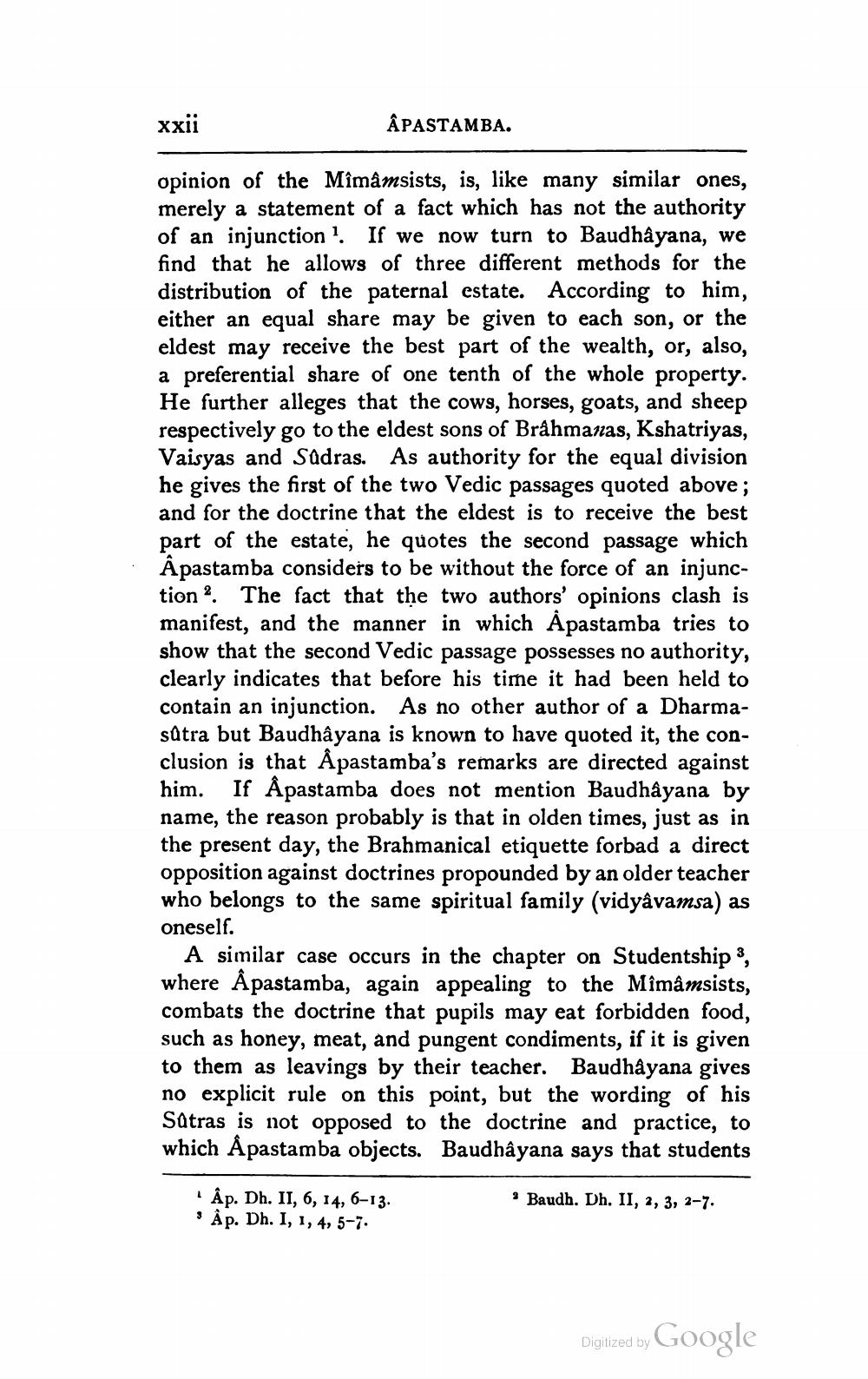________________
xxii
ÂPASTAMBA.
opinion of the Mîmâmsists, is, like many similar ones, merely a statement of a fact which has not the authority of an injunction". If we now turn to Baudhảyana, we find that he allows of three different methods for the distribution of the paternal estate. According to him, either an equal share may be given to each son, or the eldest may receive the best part of the wealth, or, also, a preferential share of one tenth of the whole property. He further alleges that the cows, horses, goats, and sheep respectively go to the eldest sons of Brahmanas, Kshatriyas, Vaisyas and Sadras. As authority for the equal division he gives the first of the two Vedic passages quoted above; and for the doctrine that the eldest is to receive the best part of the estate, he quotes the second passage which Apastamba considers to be without the force of an injunction? The fact that the two authors' opinions clash is manifest, and the manner in which Apastamba tries to show that the second Vedic passage possesses no authority, clearly indicates that before his time it had been held to contain an injunction. As no other author of a Dharmasatra but Baudhầyana is known to have quoted it, the conclusion is that Åpastamba's remarks are directed against him. If Åpastamba does not mention Baudhayana by name, the reason probably is that in olden times, just as in the present day, the Brahmanical etiquette forbad a direct opposition against doctrines propounded by an older teacher who belongs to the same spiritual family (vidyâvamsa) as oneself.
A similar case occurs in the chapter on Studentship 3, where Åpastamba, again appealing to the Mîmâmsists, combats the doctrine that pupils may eat forbidden food, such as honey, meat, and pungent condiments, if it is given to them as leavings by their teacher. Baudhayana gives no explicit rule on this point, but the wording of his Satras is not opposed to the doctrine and practice, to which Apastamba objects. Baudhầyana says that students
· Baudh. Dh. II, 2, 3, 2-7.
Åp. Dh. II, 6, 14, 6-13. Åp. Dh. I, 1, 4, 5-7.
Digitized by Google




